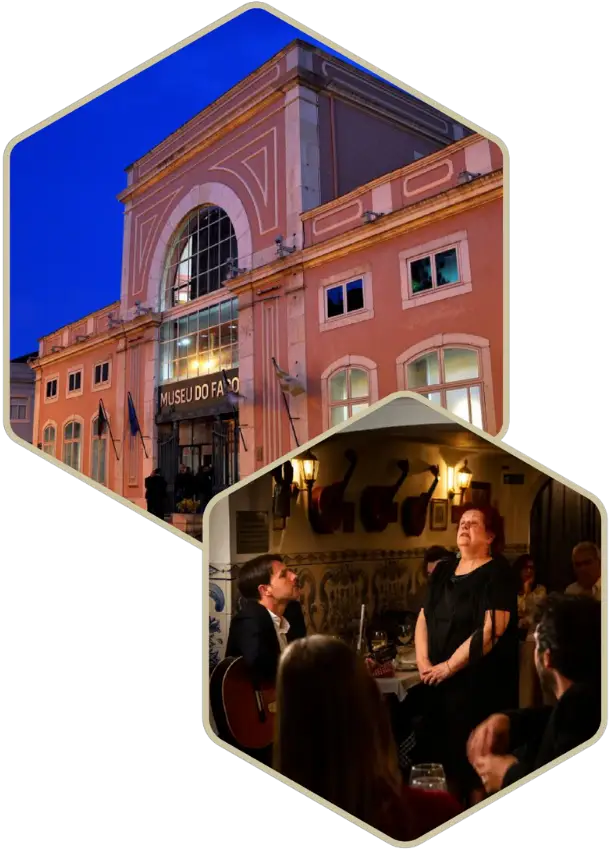
On this tour we will dive deeply into what Fado is and its importance in Portuguese culture.
Fado is much more than a musical style; it is the deepest expression of the Portuguese soul. Born in the popular neighborhoods of Lisbon in the 19th century, Fado is a song of intense feelings, marked by saudade, melancholy, and reflection on destiny, love, and life.
Its origins are not completely clear, but it is believed to have emerged from a mixture of African, Arab, and Brazilian influences, blended with Portuguese modinhas and folk songs. It first appeared in the humbler neighborhoods of Lisbon, such as Alfama and Bairro Alto, sung in taverns, alleyways, and fado houses, often associated with a bohemian and marginalized lifestyle.
Over time, Fado gained prestige and came to be recognized as an essential part of national identity. Singers like Amália Rodrigues, in the 20th century, brought Fado to international stages, becoming symbols of Portuguese culture abroad.
In 2011, Fado was officially recognized by UNESCO as Intangible Cultural Heritage of Humanity.
It will be an honor for Tours and Champagne to be your companion on this very special day.
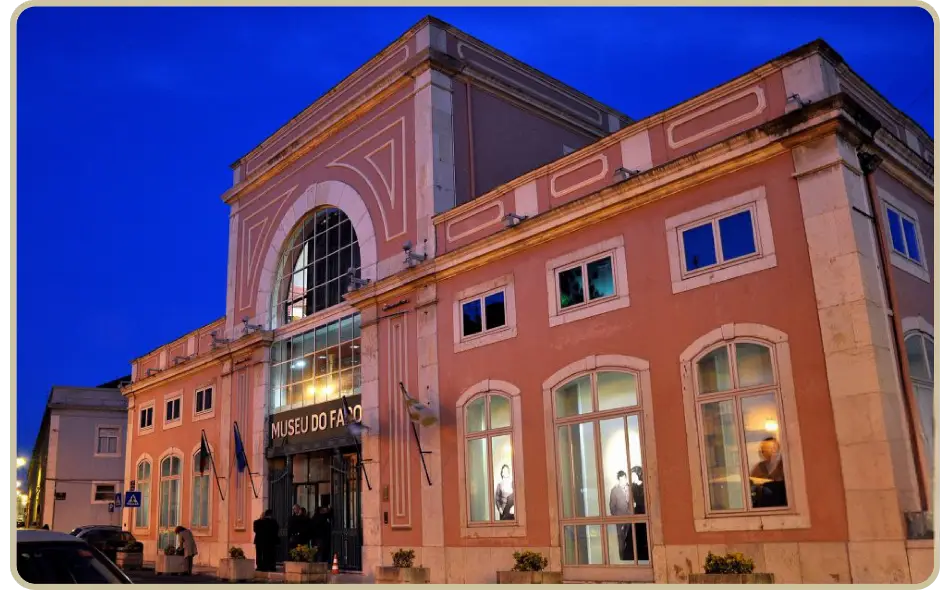
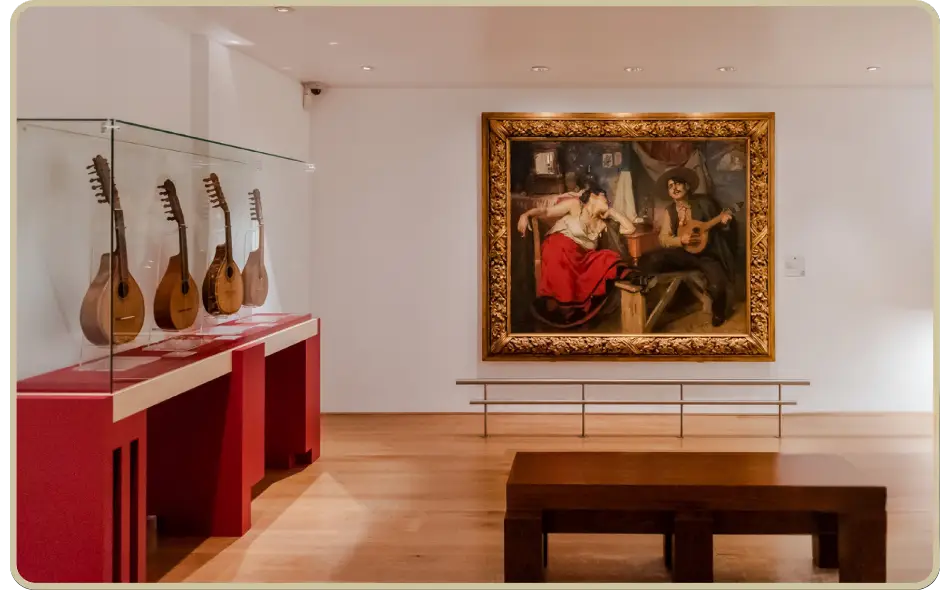
The Fado Museum, located in the historic Alfama district of Lisbon, is entirely dedicated to the preservation, study, and celebration of Fado — the traditional Portuguese song recognized as Intangible Cultural Heritage of Humanity by UNESCO since 2011.
Inaugurated in 1998, the museum pays tribute not only to the music itself but also to its singers, musicians, lyricists, composers, and instrument makers, offering visitors an immersive experience in the world of Fado.
The Fado Museum features a permanent exhibition that guides visitors through the history and evolution of Fado, from its popular origins in Lisbon’s neighborhoods to its international acclaim.
The museum also includes interactive stations where visitors can listen to recordings of both classic and contemporary Fados and watch videos documenting the life and work of key artists.
It is more than just an exhibition space — it is also a center for research, documentation, and training, with educational programs, workshops, concerts, and conferences. It also houses a constantly updated digital archive, serving as a valuable reference for scholars and Fado enthusiasts.
Within the same building operates a Fado school, where new generations of musicians and singers have the opportunity to learn directly from masters of the tradition.
The museum is located near Largo do Chafariz de Dentro, in Alfama — one of Lisbon’s most traditional neighborhoods and the natural cradle of Fado. The surroundings are steeped in history, with narrow streets, old houses, and Fado houses that, at night, fill the neighborhood with music and emotion.
The Fado Museum is a must-visit for anyone wishing to fully understand Portugal’s cultural identity. More than a place to see and hear, it is a space to feel Fado, to explore its roots, and to grasp why such a simple song carries the emotional weight of an entire people.
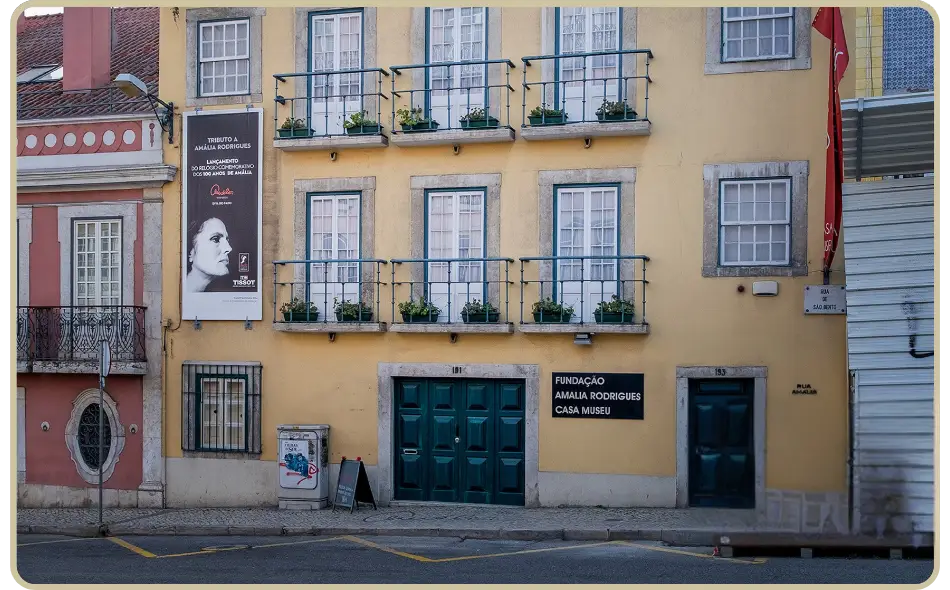
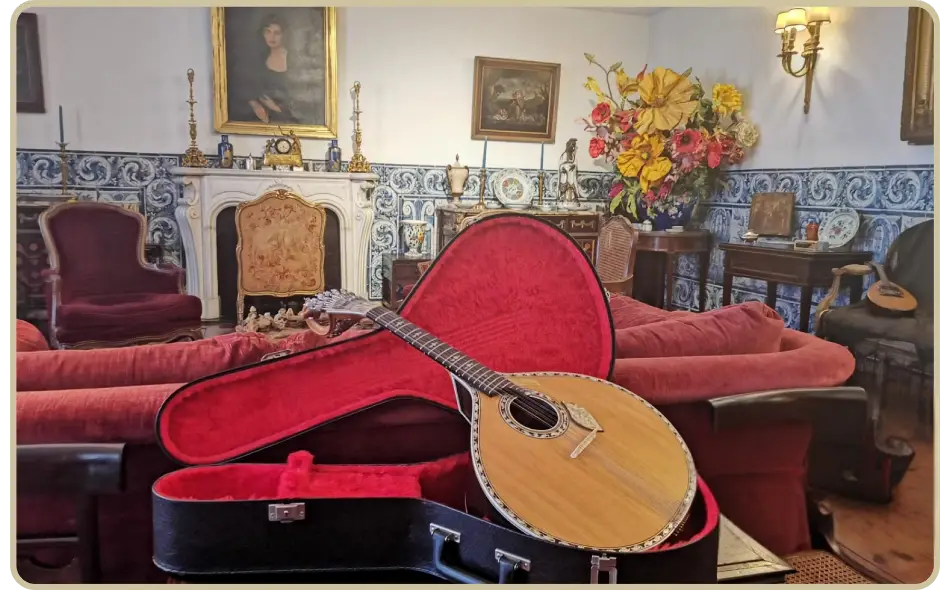
The Amália Rodrigues Foundation was created in 1999, by the artist’s own expressed wish, with the goal of preserving her legacy, promoting Fado as an artistic expression, and supporting social, cultural, and humanitarian causes. Based in the house where Amália lived for much of her life, at 193 Rua de São Bento in Lisbon, the foundation is today a living memory space, celebrating the life and talent of the greatest ambassador of Portuguese music worldwide.
At the heart of the foundation is the singer’s former residence, transformed into a house-museum and open to the public since 2001. The space preserves its original décor and offers an intimate glimpse into Amália’s world. Among the main highlights are:
The salons and bedrooms decorated with personal furniture and objects;
The impressive collection of stage costumes, jewelry, and decorations;
Photographs and memorabilia from international tours;
Her personal library and handwritten poems;
A quiet inner garden that reflects the artist’s sensibility.
A visit to the house-museum offers an emotional and unique experience, allowing visitors to get closer to the woman behind the voice that conquered the world.
The Amália Rodrigues Foundation keeps the artist’s presence alive in Portuguese culture. Her voice, marked by pure emotion, remains a reference of Fado and national identity. The foundation ensures that Amália’s legacy will not be lost in time, inspiring musicians, scholars, and admirers from all over the world.
The Amália Rodrigues Foundation is much more than a tribute to an artist — it is a symbol of love for Portuguese culture. Visiting the house where Amália lived, listening to her recordings, and learning her story is a way to connect with the soul of Fado and with the extraordinary figure who carried Portugal in her heart and in her voice to the most distant stages of the world.
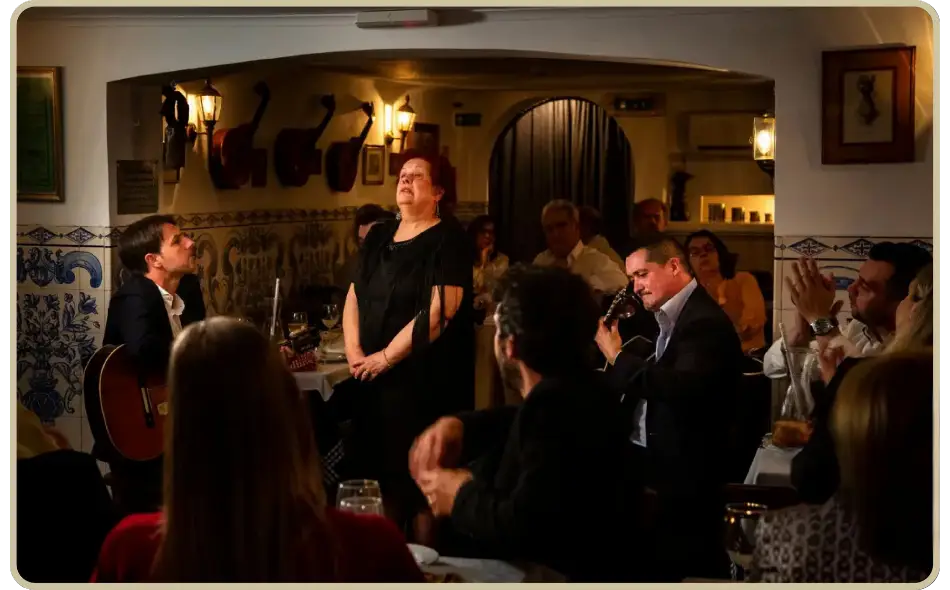
Dining in a Fado house in Lisbon is much more than a meal — it is a complete sensory experience that unites the authentic flavors of Portuguese cuisine with the intense soul of the country’s traditional music. In historic neighborhoods such as Alfama, Bairro Alto, or Mouraria, Fado echoes through the narrow streets, inviting visitors to immerse themselves deeply and unforgettablely in Portuguese culture.
The performances take place at various moments throughout the evening, between courses. The female or male singer performs with intensity and emotion, often with eyes closed, conveying stories of love, longing, destiny, and life — in the way only Fado can. Even those who do not understand Portuguese are touched by the emotion and power of the performance.
Dining in a Fado house is one of those experiences that stays in the memory of anyone visiting Lisbon. It is to feel the Portuguese soul in a dish, in a voice, in a shared silence. It is discovering that, even without words, Fado speaks directly to the heart.

Not only unique experiences, but also historic routes, and places you’ll never forget.
© All rights reserved to Tours & Champagne

I will be back soon